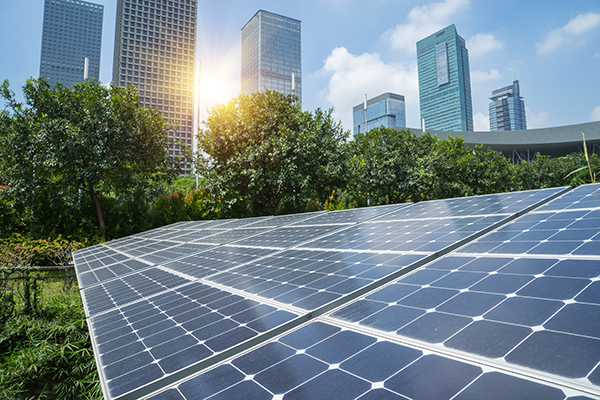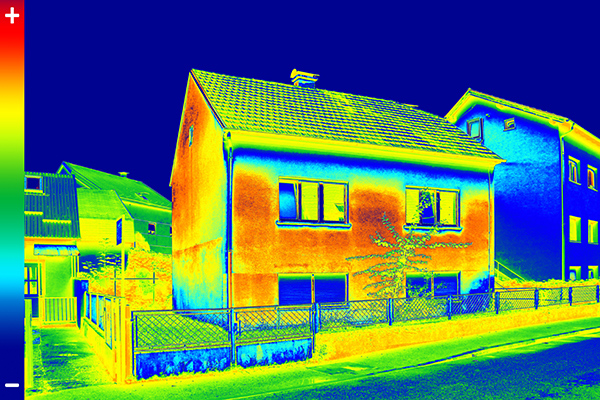
Solar Power
If it weren't for the sun and the heat energy it produces, our Earth would be uninhabitable and 'ice-age' conditions would prevail. Yet for years man has struggled with the challenges of capturing solar power effectively and using it as a source of energy. Indeed, every hour the sun shines on Earth, enough energy is produced to satisfy the global demand for energy by our planet for a year or more.
Only a small fraction of the sun's power actually hits the Earth, but however it is enough to make solar power a viable proposition. Its production is pollution-free and of course unlike reserves of oil and gas, and the sun is not going to 'run out' anytime soon. However, despite these benefits, the proportion of total energy production from the sun remains at less than 1% of the total global energy production.
There are massive country-based differences in their adoption of solar power as a viable energy source. In the EU-alone, solar power exceeds 10% of primary energy needs in only 3 countries - Greece, Spain and Malta. This figure is zero (0%) for Estonia, Finland, Latvia, Norway, Serbia and Montenegro.
Sunshine can be considered a source of energy for direct heating of buildings and water (solar thermal), for generating electricity (solar photovoltaic) and for producing crops that rely on natures ability to convert sunlight to energy by using photosynthetic (solar biomass). Solar power offers the most potential as global energy demands increase. Electricity generated in this way can be fed into the electricity grid and with its availability worldwide, its offers hope to the 1.1 billion people that live without access to electricity.
Only a small fraction of the sun's power actually hits the Earth, but however it is enough to make solar power a viable proposition. Its production is pollution-free and of course unlike reserves of oil and gas, and the sun is not going to 'run out' anytime soon. However, despite these benefits, the proportion of total energy production from the sun remains at less than 1% of the total global energy production.
There are massive country-based differences in their adoption of solar power as a viable energy source. In the EU-alone, solar power exceeds 10% of primary energy needs in only 3 countries - Greece, Spain and Malta. This figure is zero (0%) for Estonia, Finland, Latvia, Norway, Serbia and Montenegro.
Sunshine can be considered a source of energy for direct heating of buildings and water (solar thermal), for generating electricity (solar photovoltaic) and for producing crops that rely on natures ability to convert sunlight to energy by using photosynthetic (solar biomass). Solar power offers the most potential as global energy demands increase. Electricity generated in this way can be fed into the electricity grid and with its availability worldwide, its offers hope to the 1.1 billion people that live without access to electricity.
Material: 70 years ago, the first photovoltaic modules were provided by the space programs of the 1960's. They began to develop PV technology in order to provide power for space crafts. However, advancing the technology, reducing the costs and exploiting the full potential of the sun's power are not without its challenges. More efficient materials and methods to capture the sun's energy need to be found.
Storage: Issues around the efficiency of conversion and storage must also be addressed so that when the sun doesn't shine, its energy can be captured, stored and made readily available 24 hours a day.
Photovoltaic technology, Capturing the sun’s energy, Storing energy from the sun, New materials for PV cells, Alternative Energy
Related Topics

Active Assisted Living
According to the European Commission, Active Assisted Living (AAL) aims to extend the time people can live in a decent way in their own home. It sh...
READ MORE

Advanced Materials
Everything is made of something, yet, during the past century, the scientific and technological importance of new materials has not been widely app...
READ MORE

Biodiversity
Biodiversity (or "biological diversity") is a product of evolution, which has brought forth and continues to develop a diversity of populations and...
READ MORE

Biotope: Life In The Water
A biotope is defined as the combination of the physical habitat and its associated community of species. Besides other habitats, also the water has...
READ MORE

Climate Change
The temperature climate of the earth is unstable and it is getting warmer. We are reaching levels that will cause growing problems unless we manage...
READ MORE

Energy Efficiency
No construction lasts forever and at a moment in time, every building needs to be renovated and repaired. Maintenance can however be performed in m...
READ MORE

Food Chemistry
Chemistry is all around us. We breathe it, drink it, eat it, wear it, we can write with it and we can do many other things through it. Our food is ...
READ MORE

Food Preparation
Preparing food without electricity or gas is unthinkable in our industrialized countries, but it is daily routine in other parts of the world. Eati...
READ MORE

Future Cities
We are living in the age of urbanization, where the majority of the global population lives in cities instead of rural areas. This of course create...
READ MORE

Gravity
Gravity or gravitation is a natural phenomenon by which all objects are brought towards one another, including stars, planets, galaxies and sub-ato...
READ MORE




